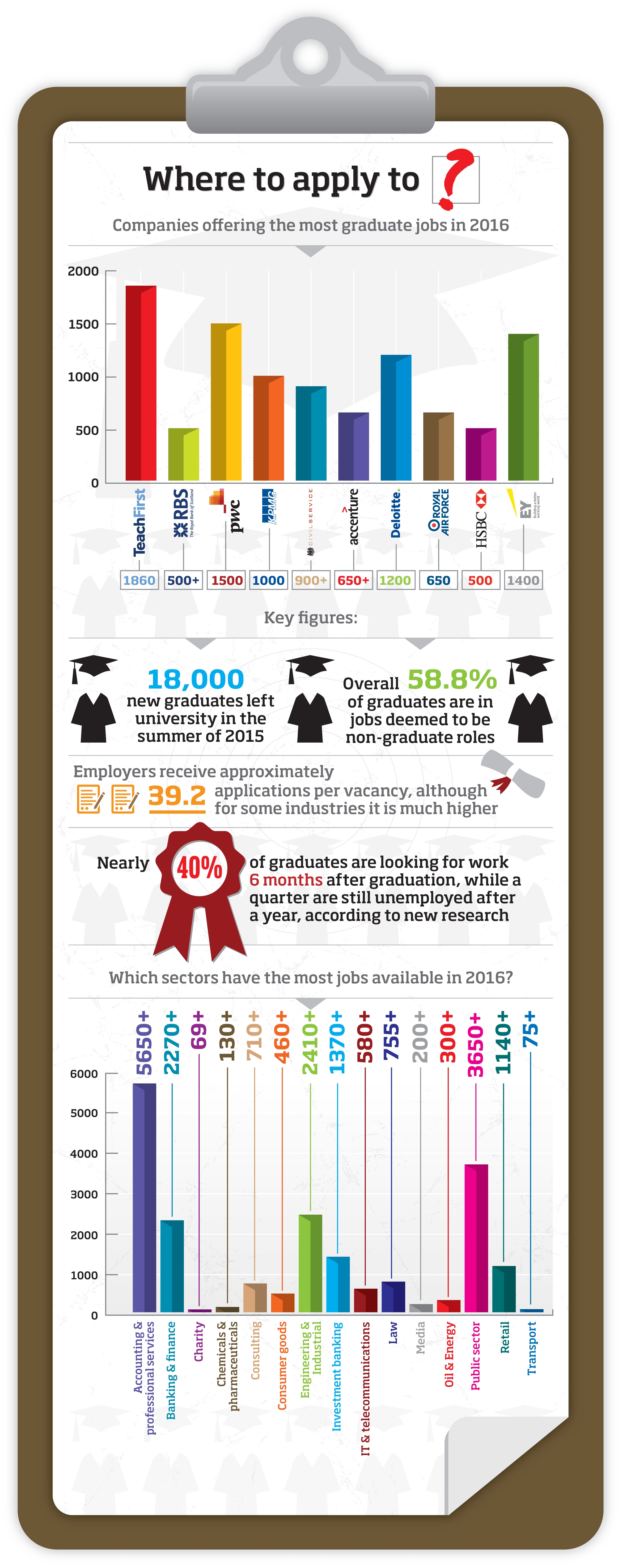Streamlining your graduate job search in 2016
Are you looking for a job in 2016? The graduate job market is a struggle for many people, considering nearly 60% of all graduates are working in non-graduate roles, or positions that do not reflect their studies six months after graduation. But why are grads not getting the roles they are after?
Despite the high percentage of young people working in non-graduate roles, unemployment in this sector is the lowest it has been since 2007 at just 4.4%. So ex-students are getting jobs but not necessarily the ones they want.
The gradual decrease of high skill employment rates for graduates is a historic trend. Illustrated by a decrease from 70.9% to 66.4% in high skill employment between 2006 and 2015. This could be down to a shift towards jobs required in medium and low skill sectors of the economy.
There is a rising amount of international students studying for and completing their degrees in the UK and they are also adding to the battle for jobs.
Some experts say it is due to a lack of preparation. Dr Andrew Clements from the University of Bedfordshire says “Undergraduate students often delay preparing for their careers until it is too late.” Confirming that “many graduates are looking for work six months after graduation and some find themselves working in jobs that do not require a degree.” He calls for an emphasis on setting career goals early rather than later i.e. in the first two years of study. And that all universities should make efforts to improve graduate employability.
What can you do to prepare?
Here are the top companies and sectors with the most jobs on offer to consider when applying. Courtesy of theknowledgeacademy.com.
Seek careers advice at your university as well as professional advice from graduate recruitment specialists. Be proactive by starting early, and stay focused on your career after university throughout your years of study. Sometimes it’s easy to lose sight of that with everything happening in your life as a student. But knowing what you need to do is half the battle, so talk to the experts, they will help you.
Interview practice – stage interviews with people close to you and try to get used to answering questions under pressure. Interview skills are a big part of your overall employability and your first chance of making an impression after your CV and cover letter.
Make use of placement opportunities – if your university offers the chance to complete a placement year during your degree then you should consider applying as these opportunities can be priceless in terms of experience early in your career. The application process is usually time-consuming, that’s why it’s vital to start early and prepare in the summer months after your first year of study. But being able to add a year’s work experience to your CV before leaving university is in any case invaluable and can give unrivalled insight into what role is right for you.
Keep in touch with your chosen industry by staying up to date with the latest trends and news during your job search once you’ve finished your degree. Reading industry magazines and following key people in your industry will provide you with a constant flow of knowledge and may give you the upper hand in interviews, as many employers look for active engagement with your profession








